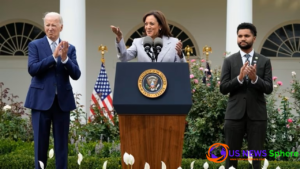Democrats Criticize Trump Officials for Using Private Messaging Apps for War Plans
The revelation that senior Trump administration officials used encrypted messaging apps like Signal to coordinate military operations has sparked intense backlash from Democratic lawmakers. This alarming disclosure raises serious national security concerns and questions about transparency in government decision-making. Understanding the implications of such practices is crucial for maintaining the integrity of national security policies.
Secret Military Talks on Private Apps Raise Security Concerns
What Happened?
According to multiple reports, top Trump officials, including Defense Secretary Pete Hegseth and Vice President JD Vance, used a Signal group chat to discuss a planned military strike in Yemen. The controversy escalated when Jeffrey Goldberg, editor-in-chief of The Atlantic, was mistakenly added to the chat, inadvertently exposing critical military details.
Why Is This a Problem?
- Classified Information at Risk – Encrypted apps lack the government’s strict security measures, potentially exposing sensitive data.
- Transparency Issues – Using private messaging means there’s no official record, raising concerns about accountability.
- Potential Foreign Espionage – If these apps are breached, enemy nations could gain access to crucial military plans.
Democratic senators have called for an urgent investigation into whether this practice violated national security protocols.
Are Private Messaging Apps a National Security Risk?
Understanding the Risks of Encrypted Apps
While apps like Signal and WhatsApp offer end-to-end encryption, they are not approved for discussing classified military strategies. The U.S. government requires sensitive information to be communicated through secured channels such as Sensitive Compartmented Information Facilities (SCIFs).
| Risk Factor | Why It’s a Problem? | Government Protocols |
|---|---|---|
| Unauthorized Communication | Private apps allow discussions outside official monitoring. | All classified talks should be held in secured government platforms. |
| Potential Hacking | Foreign intelligence agencies can target unsecured apps. | Government servers have top-tier cybersecurity defenses. |
| No Legal Accountability | Messages can be deleted, making investigations difficult. | Government communication is recorded and auditable. |
Cybersecurity expert Dr. Emily Cartwright emphasized, “Even with encryption, unauthorized use of private messaging apps increases the risk of human error and interception by adversarial entities. Government officials should strictly adhere to secure communication protocols to protect national interests.”
The Political Fallout: Investigations and Accountability
Who’s Calling for Action?
Democratic lawmakers have formally requested testimony from at least nine high-ranking Trump officials regarding their use of private messaging apps for military coordination. Their key concerns include:
- Did the use of private apps break national security laws?
- Was sensitive military data exposed to foreign threats?
- How can future administrations prevent similar breaches?
What’s Next?
Despite bipartisan concerns, Republican leaders have largely remained silent. However, some GOP members, including Senator Lisa Murkowski, have acknowledged the need for a security review. The outcome of this investigation could reshape how government officials handle classified communications in future administrations.
The Broader Debate: Military Operations in Yemen
Beyond the security lapse, this incident has reignited discussions on U.S. military involvement in Yemen.
Why Yemen?
The U.S. has been involved in Yemen primarily to counter terrorism threats. However, critics argue that:
- The American role in the conflict has lacked transparency.
- Civilian casualties from U.S. drone strikes raise ethical concerns.
- Unauthorized encrypted chats further obscure military operations.
Foreign policy analyst Jonathan Meyers stated, “This debate is not just about messaging apps—it’s about whether military decisions are being made without proper oversight. The American public deserves to know how and why military actions are being authorized.”
Conclusion: The Need for Stronger Security Policies
The Signal messaging scandal highlights the urgent need for reinforced communication security among high-ranking officials. The use of private apps to discuss classified operations presents both legal and ethical concerns that cannot be ignored.
Key Takeaways:
✔️ Trump officials used encrypted messaging apps to plan military operations, raising security concerns. ✔️ Democratic lawmakers are demanding an investigation into potential security breaches. ✔️ The use of private messaging apps for sensitive discussions raises risks of foreign espionage. ✔️ The controversy has reignited debates over U.S. military involvement in Yemen. ✔️ Stronger policies are needed to prevent future misuse of communication platforms in government.





